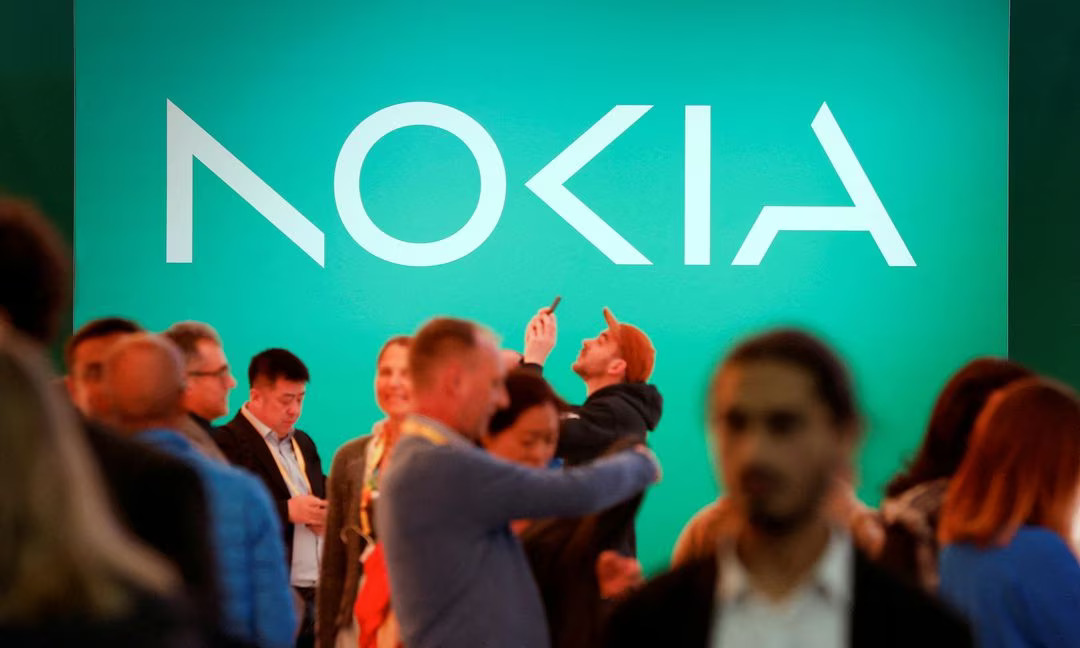STOCKHOLM/HELSINKI -- Finnish telecom gear group Nokia will cut up to 14,000 jobs to reduce costs, it said on Thursday, after weaker demand for next-generation 5G equipment lowered third-quarter sales by a fifth, adding it did not expect a market recovery soon.
The company's shares were down five percent in early trade.
As demand has slowed in countries such as the United States, Nokia and rival Ericsson have tried to offset some of the weakness with higher sales to India, a low-margin market.
"The market situation is really challenging and it is witnessed by the fact that in our most important market, which is the North American market, our net sales are down 40 percent in Q3," Chief Executive Pekka Lundmark told Reuters in an interview.
Nokia is targeting savings of between 800 million euros ($842 million) and 1.2 billion euros by 2026, its deadline to deliver a long-term comparable operating margin plan of at least 14 percent.
The company expects to reduce its employee base to between 72,000 and 77,000 employees, from 86,000, or about 16-percent job cuts at the high end.
Lundmark declined to give more details saying the company must consult first with employee representatives. However, he said he wanted to protect research and development.
Nokia expects at least 400 million euros of savings in 2024, and a further 300 million euros in 2025.
Ericsson, which has also laid off thousands of employees this year, said on Tuesday the uncertainty affecting its business would persist into 2024.
Nokia, which echoed Ericsson's comments on uncertainty, however said there will be a more normal seasonal improvement in its network businesses in the fourth quarter.
The company did not cut its full-year outlook.
"We continue to believe in the mid-to-long-term market, but we are not going to sit and wait and pray that the market will recover anytime soon," Lundmark said. "We simply don't know when it will recover."
|
|
| A screen displays the company logo for Nokia Corporation on the floor of the New York Stock Exchange (NYSE) in New York City, U.S., May 24, 2023. Photo: Reuters |
For market recovery, Lundmark said the industry needs to invest in faster mid-band equipment to help cope with the growth in data traffic. "Only 25 percent of 5G base stations in the world outside of China currently has mid-band," he said.
Mid-band equipment offers higher 5G speeds but many telecom operators started their 5G deployment with low-band gear that is cheaper but offers lower speeds.
Quarterly comparable net sales fell to 4.98 billion euros from 6.24 billion last year, missing an estimate of 5.67 billion euros according to a LSEG poll.
Nokia will move to a leaner corporate centre to boost strategic focus while protecting spending on research and development, and giving more operational autonomy to business units, it said.
"There are signs here and there that demand would start to pick up again but it's too early to call it a broad-based trend," Lundmark said.
($1=0.9493 euros)


















































